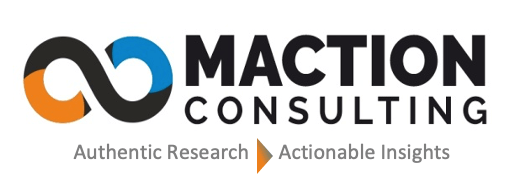Most businesses see the value of investing in big data analytics because these technologies offer cost savings, increased productivity, and better decision-making. According to a MicroStrategy survey, data and analytics are at the heart of their organization’s digital transformation efforts, with 90% of participants agreeing.
Analytics is the key to actually “understanding” your customer and paving the way for new ideas, hyper-targeted advertising techniques, and customised marketing campaigns. We’ll look at the advantages of big data in this essay.
What is Advanced Analytics?

Advanced analytics is a collection of strategies and methodologies for employing data-driven, fact-based information to help businesses find trends and patterns, solve problems, accurately anticipate the future, and drive change. It goes beyond Business Intelligence by providing complex algorithms and analytical methodologies that enable more refined, precise answers and more creative, educated judgments in the organisation.
Managers can utilise historical data to predict competitive response and ongoing changes in buying behaviour using Business Intelligence. Advanced analytics technologies improve predictive analytics and provide real-time insight into change, allowing firms to be more responsive and forecasts and plans to be more accurate.
As the market for analytical solutions expands, self-serve technologies give business users the flexibility to employ Self-serve Data Preparation, Smart Data Visualization, and aided predictive modelling to work at a level that was previously unattainable.
Business users with ordinary skills can explore data and benefit from the benefits of Augmented Analytics with guidance and recommendations that will help them acquire better, clearer findings without the skills or knowledge of an analyst or data scientist. Having said that, let’s have a look at the 5 key benefits of advanced analytics for business.
5 Key Benefits of Advanced Analytics
Big data analytics may help businesses become customer-centric, giving them a competitive advantage. While marketers have long been focused on using data for ad targeting and content production, most firms have yet to attain real marketing intelligence.
You’ll often have teams that capture a lot of data–and are adept at deciphering the “why” behind each metric–but even the best analysts are working off of best practises and gut feelings.
1. Improved decision making

One of the most major advantages of big data analytics is that it considerably improves the decision-making process. Companies are increasingly turning to data before making decisions, rather than depending solely on intuition. The key advantage of big data analytics is that it considerably improves the decision-making process. Companies are increasingly turning to data before making decisions, rather than depending solely on intuition.
Companies are better positioned to produce accurate forecasts when big data is combined with AI, machine learning, and data mining. Machines, for example, could assist firms in predicting what a customer could purchase—for example, those who purchase X beer and Y bread are likely to purchase Z merchandise.
2. Access to detailed analytics

By decentralising the process of generating reports and making sense of the findings, AI is increasingly assisting in getting data analytics into the hands of more employees. Organizations can obtain total visibility into their operations across all departments by implementing self-service, intelligent technologies.
3. Automation

According to an EY analysis, automated data processing can support approximately 65 percent of HR processes, such as payroll processing, candidate screening, and data cleansing.
According to McKinsey, firms can automate 69 percent of data processing time, increasing business performance while lowering costs–data processing duties encompass everything from loan applications and customer service inquiries to manually processing invoices and forms. At least 18 percent of all corporate activities, according to the firm, can be automated.
According to an Atlassian survey on the Future of Teamwork, roughly 87 percent of workers believe AI will change their profession by 2020, and 76 percent feel that a robot, algorithm, or AI-enabled device could perform at least “part” or “half” of their job.
What’s crucial to remember is that automation isn’t inherently a bad thing–humans will continue to be required for the foreseeable future. According to the Atlassian analysis, these developments present a great opportunity for workers to leverage technology to solve problems and avoid repetitive chores.
4. Predictive Modelling

Organizations can use predictive modelling to figure out what’s causing problems and predict future results. Doctors are employing analytic simulations to find the optimal treatment plans for NICU babies, manage public health issues like kidney illness, and track COVID-19 outbreaks, for example.
Predictive analytics tools are used in financial services to identify fraud threats and establish creditworthiness. These technologies are also being used to assist policies related to climate change and conservation, nuclear power, oil drilling, and other topics.
5. Customization

Most marketing teams consider providing a tailored experience to be the gold standard. As a result, one of the most significant benefits of big data analytics is that marketers can now give personalised experiences at scale.
According to a Salesforce survey, 84 percent of customers consider it “extremely important” to be treated like a person. In addition, customers are more than twice as likely to read tailored offers as generic offers, according to their results.
Big data fuels recommendation engines, price optimization, and gives businesses a comprehensive perspective of their customers, allowing them to customise tfor each person. For example, United Airlines leverages data to deliver personalised service by giving flight attendants access to a customer information app. This allows them to better help customers with tight connections or unique needs, as well as engage users based on profile information.
The Bottomline
Big data has far too many advantages to be overlooked. Smart data-driven businesses are increasingly relying on new tools to better understand their consumers, automate procedures, and simplify complex operations. They’re using real-time data to help them make quick decisions about new possibilities and risks.
There’s a window of opportunity right now to get ahead of the curve and establish the groundwork for long-term success. The specialists at Maction can assist you in identifying and implementing the finest big data use cases for your company. To learn more about our services, please contact us immediately.


